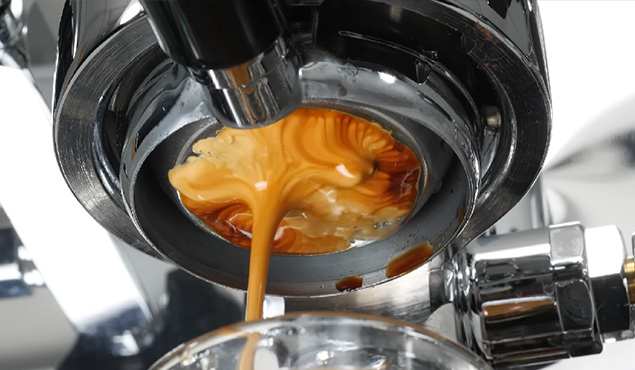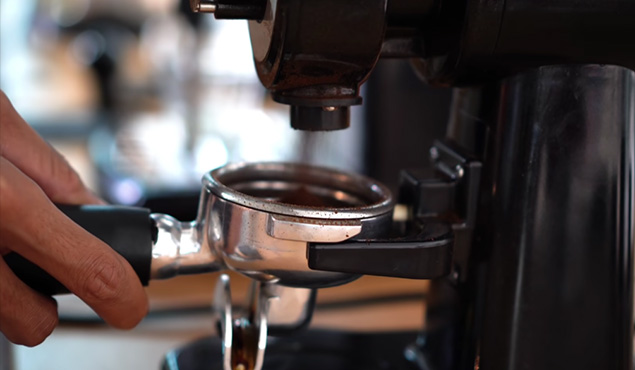How to Prevent Diarrhea Caused by D Coffee: 5 Simple Tips!

Do you love your daily cup of coffee but suffer from frequent diarrhea after drinking it? If yes, you’re not alone!
Coffee-induced diarrhea is a common problem that affects many people. But there are ways to prevent diarrhea while you enjoy your favorite beverage.
Preventing diarrhea from coffee is possible through simple modifications like switching to low-acid coffee or reducing caffeine intake.
These minor changes can make a big difference in your digestive health. You can continue enjoying your daily cup of joe without the unpleasant side effects.
But did you know other factors can contribute to your coffee-induced diarrhea? So, today we’ll explore some of the lesser-known causes of this problem with their solutions.
Keep reading to learn more and discover how to say goodbye to coffee-induced diarrhea!
Related Read: Pros and Cons of Coffee: That May Surprise You!
Does Coffee Cause Diarrhea?
Yes, a cup of coffee can cause diarrhea in some people. It contains compounds that can stimulate the muscles in the digestive system, which can cause bowel movements to happen more quickly.
Therefore, drinking coffee can lead to diarrhea, especially if you consume more than two or three cups daily or have a sensitive stomach.
It’s also worth noting that some people may be intolerant to caffeine which can cause digestive issues, including diarrhea.
5 Reasons Why Coffee Causes Diarrhea
While coffee is generally considered safe, it can sometimes cause digestive issues, including diarrhea.
So, let’s explore the five reasons coffee can lead to diarrhea.

1. Caffeine Increases Muscles Contraction
One of the main culprits behind coffee-induced diarrhea is caffeine – the natural stimulant in your drink.
Caffeine stimulates the muscles in your digestive tract, causing them to contract much more frequently and with greater intensity.
While increased muscle activity is beneficial and aids digestion for some people, it can lead to diarrhea for others.
Besides, the rapid and forceful contractions of the intestinal muscles can cause food and waste to move too quickly through the digestive tract. Therefore, it can lead to loose and watery stools.
2. Acidity Of Coffee
Coffee is a highly acidic beverage. The acidity gives coffee its distinctive taste and aroma.
On the other hand, the acidic nature of coffee can irritate the stomach lining and intestines, especially for people with a sensitive digestive system.
The stomach lining has a protective layer of mucus that helps prevent the stomach’s acidic contents from damaging the stomach walls.
However, when this mucus layer weakens, the stomach acid can irritate and inflame the lining. Thus, it can cause diarrhea.
In addition, the high acidity of coffee can also increase bile production in the liver, which is then released into the small intestine to aid digestion. So, if the liver releases too much bile too quickly, it can lead to diarrhea.
3. Coffee Has Laxative Effect:
Coffee has a laxative effect on the Gastrointestinal tract. Thus, it stimulates the digestive system’s muscles and increases gastrin hormone production.
The Gastrin hormone signals the stomach to release gastric acid. Gastric acid promotes digestion but may also contribute to the sudden urge to go to the toilet after drinking coffee.
Therefore, the effect of gastrin on the digestive system may be another reason why coffee causes diarrhea.
4. Dairy Products
Adding dairy products and sugar to your morning coffee is a common practice. However, it can cause coffee-induced diarrhea, especially in lactose-intolerant individuals.
When lactose passes through the small intestine without being fully digested, it can draw water into the intestine and lead to loose stools.
5. Adding Artificial Sweeteners
Consuming too much sugar with coffee can also lead to diarrhea. High sugar intake can cause an osmotic effect. The osmosis in the human body pulls water into the intestine and leads to loose and watery stools.

What are the Symptoms And Complications Of Diarrhea?
Diarrhea is a common ailment that affects people of all ages worldwide. We can describe diarrhea as the frequent passing of loose or watery stools, leading to dehydration, weakness, and other complications.
But how can you diagnose it? Let’s look at the common symptoms of Diarrhea.
Symptoms of Diarrhea:
- Abdominal pain or cramps
- Nausea and vomiting
- Fever
- Loss of appetite
- Dehydration
- Individuals may experience bloody or black stools in severe cases, indicating a more serious underlying condition.
Diarrhea is not a severe disease but might lead to life-threatening complications if left untreated.
Complications of Diarrhea
If left untreated, diarrhea can lead to severe complications, including Dehydration, electrolyte imbalance, and malnutrition. It can cause the body to lose fluids and electrolytes faster than you can replace them.
Diarrhea can induce severe dehydration in the body leading to electrolyte imbalances such as sodium, potassium, and chloride.
Furthermore, prolonged diarrhea can lead to malnutrition, as the body may not be able to absorb nutrients from food properly.
However, severe cases can cause kidney issues, such as acute kidney injury, which can be life-threatening.
Should I Avoid Coffee while Suffering from Diarrhea?
If you can’t function without your daily dose of caffeine, the thought of giving up your morning cup of coffee can be daunting.
But the truth is, if you are suffering from diarrhea, you should reduce your caffeine intake until your symptoms subside.
Coffee is a stimulant that can irritate the lining of the stomach and intestines, worsening diarrhea symptoms. Plus, coffee is a diuretic, which can further dehydrate you if you’re already experiencing fluid loss due to diarrhea.
So, while you may love your morning drink, it’s best to avoid drinking coffee until your diarrhea has resolved.
Instead, opt for clear fluids like water or electrolyte solutions to help rehydrate your body and restore lost nutrients.

How To Avoid Coffee-induced Diarrhea?
Coffee is a world-famous beverage, but coffee-induced diarrhea can cause severe health issues.
As we have discussed, diarrhea can lead to severe complications, and caffeine is the main culprit behind increased diarrhea. So we must look into ways to resolve the issue.
Therefore, this section focuses on how to prevent diarrhea from coffee. So, let’s have a look at five simple ways:
1. Limit Your Caffeine Consumption
Consuming too much caffeine can stimulate the digestive system and cause diarrhea. Limit caffeine intake or switch to low-caffeine or decaf coffee to avoid health issues.
On the other hand, moderate coffee consumption has several health benefits. For instance, it lowers the risks of type 2 diabetes, liver disease, and certain cancers and improves cognitive function. Yet, a healthy adult should consume less than 400 mg of caffeine daily.
2. Eat Fibrous Foods
If you experience diarrhea after drinking coffee, try incorporating more fibrous foods into your diet.
Fiber can help regulate digestion and prevent diarrhea. Good sources of fiber include fruits, vegetables, whole grains, and legumes.
3. Use Less Acidic Coffee
Switching to less acidic coffee with a pH of 5 or higher can help alleviate digestive issues. Thus, it can reduce stomach churn, abdominal pain, and acid reflux.
Less acidic coffees include Arabica, Nigerian, and Brazilian coffee. The less acidic coffee grounds taste as good as regular coffee beans.
Besides, you can also add milk to reduce the acidity of your coffee and prevent diarrhea episodes due to coffee consumption.
4. Use Darker Roast Coffee
Darker roasts contain lower levels of compounds called chlorogenic acids, which can irritate the stomach and intestines. Therefore, switching to darker roasts is good if you experience diarrhea after drinking coffee.
Moreover, some research suggests dark roast coffee may be less likely to cause gastrointestinal distress than lighter roast coffee.
5.Use Plant-Based Dairy Substitutes If You Are Lactose Intolerant
If you are lactose intolerant and experience diarrhea after drinking milk-based coffee, switch to plant-based dairy substitutes. Several plant-based options, such as soy, almond, or oat milk, may help. These options are typically lactose-free and may be easier on your digestive system.
It’s important to note that some people with lactose intolerance may still experience symptoms when consuming specific plant-based milk alternatives.
However, if necessary, you can experiment with different milk substitutes to find one that works well.
What are the Tips to Minimize the Adverse Effects of Coffee?
Coffee is a beloved beverage worldwide due to its rich flavor and energizing effects.
However, excessive coffee consumption can negatively affect your health, including jitters, anxiety, disrupted sleep, and diarrhea.
To help minimize these adverse effects, here are some life-changing tips:
- Drink water alongside caffeinated beverages to stay hydrated.
- Limit coffee consumption to 1-2 cups per day.
- Avoid drinking coffee on an empty stomach.
- Choose low-acid or dark roast coffee to reduce stomach discomfort.
- Consider drinking decaffeinated coffee or tea.
- Don’t add sugar or artificial sweeteners to coffee.
- Gradually reduce your caffeine intake to avoid withdrawal symptoms.
- Take breaks from coffee to allow your body to adjust.
- Do not drink coffee late afternoon or evening to prevent disrupted sleep.
- Use natural alternatives like exercise or fresh air for an energy boost instead of relying solely on caffeinated beverages.

Conclusion
In a nutshell, the relationship between coffee and diarrhea is complex and multi-faceted.
Coffee can stimulate the digestive system and lead to bowel movements. Excess consumption of coffee can also negatively affect the gastrointestinal tract if you are lactose intolerant.
However, there are ways to minimize the risk of coffee-induced diarrhea. Try switching to low-acid or dark roast coffee, drinking coffee in moderation, and eating before or with your morning cup.
By following these tips and paying attention to your body’s reaction, you can continue to enjoy your morning coffee, preventing any adverse side effects.
FAQs
What To Do If I Have Coffee-Induced Diarrhea?
If you have coffee-induced diarrhea, stop drinking coffee until your symptoms subside. Also, drink plenty of water and clear fluids like ginger tea. You should also try a low-fiber, low-residue diet to reduce the frequency and severity of your bowel movements. However, I suggest speaking with a healthcare professional if your symptoms persist or worsen.
Is It Safe To Drink Coffee With IBD?
No, drinking coffee with inflammatory bowel disease or irritable bowel syndrome is not at all safe. Expert dietitians recommend avoiding caffeine during IBD treatment.
Why does coffee trigger IBS?
Coffee can trigger IBS symptoms due to its caffeine content, acidity, and ability to stimulate the GI tract. According to a study of Gastroenterology, up to 30% of people with IBS report coffee as a symptom trigger.
Should people with IBS avoid coffee?
People with Irritable Bowel Syndrome (IBS) may need to avoid coffee or limit their consumption. Coffee can be a gastrointestinal irritant, and it can worsen IBS symptoms. Therefore, if someone with IBS notices that coffee stimulates or aggravates their symptoms, it may be a good idea for them to avoid it or switch to decaf.
What are signs you should stop drinking coffee?
Signs you should stop drinking coffee include difficulty or trouble sleeping, digestive issues, jitters or anxiety, and a dependency on caffeine. These conditions indicate that you consume too much caffeine and should consider cutting back or taking a break.
What’s the fastest way to get the caffeine out of your system?
Drinking plenty of water is the fastest way to flush caffeine out of your system more quickly. Simply wait for the coffee to metabolize naturally, which can take several hours depending on individual factors such as age, weight, and metabolism. However, you can also do Physical activity to speed up your metabolism and aid in the breakdown of caffeine.
Is Coffee Good For Diarrhea?
Coffee with high caffeine content, diuretic effect, and acidity can worsen diarrhea symptoms. Therefore, coffee intake is not typically recommended for diarrhea.
